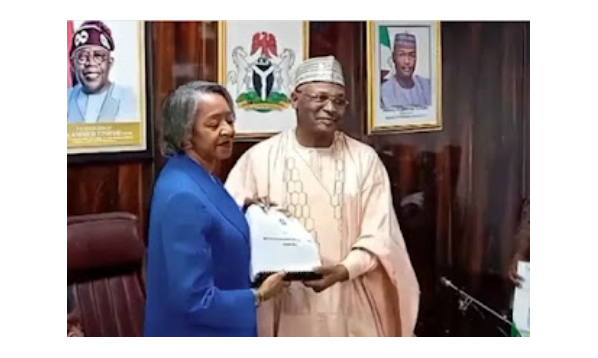
In a surprise move that marks the end of an era in Nigeria’s electoral administration, Chairman of the Independent National Electoral Commission (INEC), Professor Mahmood Yakubu, has formally resigned after a decade in office.
Yakubu, who was appointed in 2015 by former President Muhammadu Buhari and reappointed in 2020, announced his resignation during INEC’s quarterly meeting with Resident Electoral Commissioners (RECs) in Abuja on Tuesday.
He handed over to the most senior National Commissioner, Mrs. May Agbamuche-Mbu, who will serve as Acting Chairman pending the appointment of a substantive replacement.
Explaining his decision, Yakubu said stepping down ahead of schedule was to ensure a smooth leadership transition as INEC enters what he described as a “busy electoral season,” with the Anambra governorship election slated for November 2025, the FCT Area Council poll in February 2026, and the Ekiti and Osun governorship elections in 2026—all precursors to the 2027 general elections.
Reflecting on his 10-year tenure, Yakubu highlighted key milestones in INEC’s evolution, including the introduction of biometric voter registration, the Bimodal Voter Accreditation System (BVAS), electronic result transmission, and online nomination and monitoring platforms.
“Together, we built a foundation for credible elections in Africa’s largest democracy,” Yakubu said, expressing appreciation to political parties, the National Peace Committee, civil society groups, security agencies, the media, and particularly NYSC corps members whom he described as “the most patriotic election officials.”
Yakubu’s resignation closes a significant chapter in Nigeria’s electoral reforms. His exit comes as INEC braces for another test of its institutional resilience ahead of the 2027 polls.
With Agbamuche-Mbu now steering the commission in an acting capacity, attention shifts to the Presidency for the appointment of a new INEC boss — a decision that will set the tone for the next phase of Nigeria’s democratic journey.